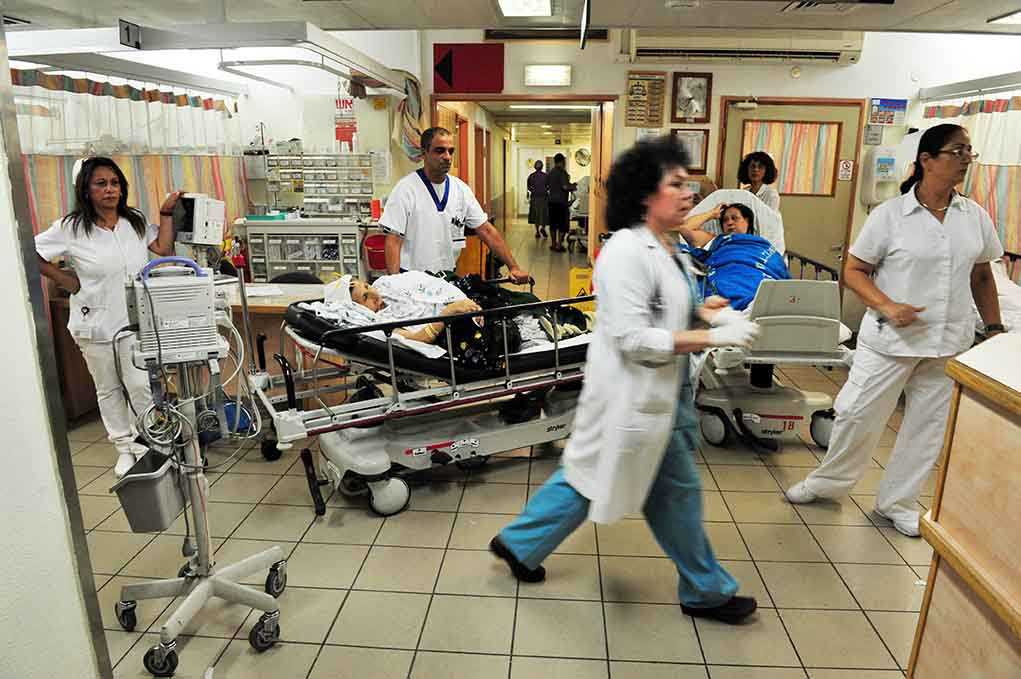
Repeated security failures at a North Carolina psychiatric hospital have endangered vulnerable children and exposed deep flaws in for-profit mental health care, sparking alarm among families and conservatives concerned with government accountability and child safety.
Story Snapshot
- Seven children escaped Holly Hill Hospital in Raleigh, triggering a massive police search and renewed scrutiny of the facility’s chronic safety lapses.
- State regulators have repeatedly sanctioned Holly Hill and its operator, Universal Health Services, for failing to protect patients and prevent escapes.
- The hospital’s ongoing pattern of patient escapes and violent incidents highlights systemic issues—especially under for-profit management—raising concerns about oversight and public safety.
- Staffing shortages, inadequate supervision, and poor facility security continue despite promises of reform, leaving families and communities at risk.
Pattern of Escapes and Systemic Failures at Holly Hill Hospital
On a Sunday night in late 2024 or early 2025, multiple children managed to escape from Holly Hill Hospital, a psychiatric facility in downtown Raleigh. Local police and emergency responders launched a large-scale nighttime search operation, reflecting the seriousness of the breach and the vulnerability of the children involved. This incident is not isolated; it forms part of a longstanding pattern where escapes and violent disturbances have plagued Holly Hill, prompting repeated investigations and sanctions by North Carolina regulators. These recurring failures have eroded community trust in the facility’s ability to keep children safe.
Since at least 2019, Raleigh Police have received over a dozen calls about patient escapes from Holly Hill. In June 2021, two teenagers scaled a fence and went missing for several days, resulting in state intervention and heightened oversight. A violent uprising in December 2024 further underscored the hospital’s inability to manage high-risk patients, with property damage and injuries reported. Despite claims from hospital leadership that security upgrades—such as new fencing and staff training—have been implemented, these incidents continue, signaling ongoing deficiencies in facility management and oversight. The hospital’s operator, Universal Health Services (UHS), is a for-profit corporation that has faced similar scrutiny at other facilities nationwide.
Regulatory Oversight and Stakeholder Accountability
The North Carolina Department of Health and Human Services (NCDHHS) has repeatedly cited Holly Hill and UHS for inadequate supervision, insufficient staffing, and poor emergency response protocols. Regulators once placed the hospital under “immediate jeopardy,” the most severe sanction, due to its chronic security lapses. Despite promises of corrective action, fresh incidents keep surfacing. Families of patients, particularly those under involuntary commitment, have limited influence over placement and must rely on regulators and law enforcement to ensure their children’s safety. Hospital staff operate in challenging conditions, often under-resourced and overburdened, which further undermines patient care and security. The power to enforce meaningful change rests with UHS leadership, state regulators, and, during emergencies, local police.
Limited data is available regarding the exact outcome of the most recent escape, but similar past incidents ended with the children being found and returned to care. The hospital remains under scrutiny, facing potential further sanctions or operational changes. These recurring crises have prompted calls for more robust oversight and even reconsideration of the role for-profit providers should play in mental health care for minors. The broader community, meanwhile, bears the cost of repeated police responses and the lingering fear that vulnerable children are not being adequately protected.
Broader Implications: For-Profit Models and Public Safety
The repeated escapes and violent events at Holly Hill reflect deeper systemic issues within the for-profit behavioral health sector. Mental health professionals and advocates have criticized UHS for prioritizing operational efficiency and profit over patient safety, leading to chronic under-staffing and inadequate training. Academic research confirms that similar patterns exist at other UHS facilities, suggesting the problem is not unique to Raleigh. These failures not only place patients and families at risk but also strain community resources through frequent emergency responses and increase the likelihood of legal liability for the provider. Public confidence in psychiatric care for minors continues to erode as these incidents persist without lasting resolution.
A massive search was conducted Sunday night for several children who escaped a psychiatric hospital in North Carolina, police said. https://t.co/4Nz0tZMlXY
— WOWK 13 News (@WOWK13News) September 22, 2025
The ongoing crisis at Holly Hill raises fundamental questions about oversight, transparency, and the role of government in safeguarding vulnerable children. Conservative values of limited government must be balanced against the clear need for accountability and rigorous standards in mental health care. While some stakeholders argue that underfunding of public mental health contributes to these failures, others point to the unique risks posed by for-profit models that may cut corners on safety and staffing. As regulatory scrutiny intensifies, families and communities demand answers and meaningful reforms to prevent further tragedies and restore trust in the system.
Sources:
Holly Hill under scrutiny again: State finds repeated failures after violent patient uprising











